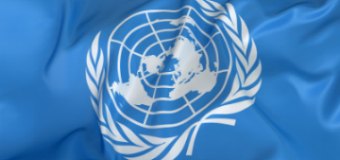Ireland was one of fourteen countries that voted against a United Nations Human Rights Council resolution called on countries to protect
the family as the “natural and fundamental group unity of society”.
Citing the Universal Declaration of Human Rights, a sitting of the Human Rights Council (HRC) in Geneva voted 29 to 14, with four abstentions, in favour of the ‘Protection of the Family’ resolution, requiring countries to offer increased protections for the family unit.
Calling on nations to recognise “increasing vulnerabilities” facing the modern family, the HRC suggested that protections offered could include specific laws and family-friendly policies, noting that while the state had responsibility for protecting human rights, due consideration should be given to the family as “the natural environment for the growth and well-being of all its members and particularly children [and having] the primary responsibility for the nurturing and protection of children”.
The resolution was immediately criticised by various lobby groups for its failure to offer a diverse interpretation of the family unit, reflective of moves in various countries to redefine the family and marriage and downgrade the importance of the natural family consisting of mother, father and child.
America and Britain were among the other countries that voted against the resolution.
However, its passage was hailed by pro-family groups. Family Watch International described the move as an “unprecedented tremendous victory for the family”.
“It is the first time ever in the history of the United Nations that a comprehensive resolution has been passed calling for the protection of the family as a fundamental unit of society, recognising the prior right of parents to educate their children, and calling on all nations to create family-sensitive policies and recognize their binding obligations under treaty to protect the family,” a spokesperson for the group said.
The US-based Centre for Family and Human Rights echoed these sentiments and hailed the UN’s resolution as “a tremendous victory for the pro-family world”.
Like the Universal Declaration of Human Rights, the Irish Constitution sees the family as the “natural and fundamental unit group of society” but following the passage of the recent referendum redefining marriage and the family now regards the marriage of two people of the same sex as being as natural and fundamental to society as the marriage of a man and a woman.
















